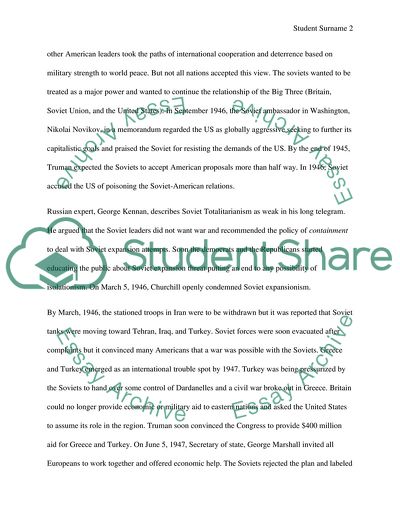Cite this document
(“Truman and Cold War America - 1945-1952 Term Paper”, n.d.)
Truman and Cold War America - 1945-1952 Term Paper. Retrieved from https://studentshare.org/history/1738471-summary-chapter-26-american-history
Truman and Cold War America - 1945-1952 Term Paper. Retrieved from https://studentshare.org/history/1738471-summary-chapter-26-american-history
(Truman and Cold War America - 1945-1952 Term Paper)
Truman and Cold War America - 1945-1952 Term Paper. https://studentshare.org/history/1738471-summary-chapter-26-american-history.
Truman and Cold War America - 1945-1952 Term Paper. https://studentshare.org/history/1738471-summary-chapter-26-american-history.
“Truman and Cold War America - 1945-1952 Term Paper”, n.d. https://studentshare.org/history/1738471-summary-chapter-26-american-history.


